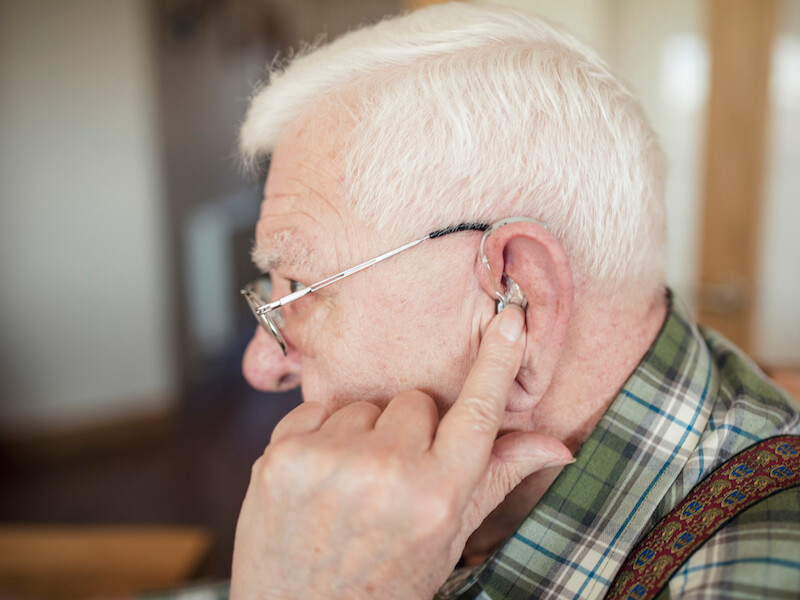
Do you feel like your hearing aid batteries are not keeping a charge as long as they should? Here are a few surprising reasons that might occur. What is the average period of time that your hearing aid batteries should keep a charge? The standard hearing aid battery should last anywhere from 3 to 7 days. That range is pretty wide. So wide, in fact, that it’s unpredictable and leaves you in a serious predicament. Things could suddenly get quiet when you’re trying to hear the cashier at the grocery store after 4 days of battery power. Or it’s day 5 and you’re having a call with friends when all of a sudden you find yourself feeling really alone because you can no longer follow the conversation. Now, you’re watching the TV. You can no longer hear the news. Hold on, it’s only day 2. Yes, occasionally they even drain before that 3-day mark. It isn’t just annoying. You’re missing out on life because you don’t know how much battery power you have left in your hearing aids. Here are the most likely culprits if your hearing aid batteries drain quickly.
A Battery Can be Depleted by Moisture
Did you realize that humans are one of the few species that release moisture through their skin? We do it to cool off. It’s the body’s way of purging the blood of toxins and sodium. You might also live in a climate that’s moist and humid. This additional moisture can clog the air vent in your device, making it less reliable. Moisture can also mix with the chemicals of the battery causing it to deplete faster. Here are a few measures you can take to avoid moisture-caused battery drain:
- Moist conditions, like the kitchen or bathroom are not a good place to keep your hearing aids
- When you store your hearing aids, open the battery door
- Obtain a dehumidifier for your hearing aids
- Don’t leave the batteries in if you’re storing them for several days
Advanced Hearing Aid Features Can Run Down Batteries
Advanced digital hearing aids help people hear so much better than ones that came out just 10 years ago. But these extra features can cause batteries to run down faster if you’re not paying attention. Don’t quit using your favorite features. But just know that if you stream music for hours from your mobile device to your hearing aids, you’ll need to change the battery sooner. Your battery can be drained by any of the advanced functions, like Bluetooth, multichannel, noise cancellation, and tinnitus relief.
Altitude Changes Can Affect Batteries Too
Going from a low to high altitude can sap your batteries, especially if they’re on their older. Bring some extra batteries if you are going on a plane or high up into the mountains.
Maybe The Batteries Aren’t Really Low
Some hearing aids tell you when the battery is running low. Generally speaking, these alerts are giving you a “heads up”. It doesn’t mean you have a dead battery. On top of this, sometimes an environmental change in altitude or humidity temporarily causes the charge to drop and the low battery alarm gets triggered. In order to end the alarm, remove the batteries, and then put them back in. The battery may last several more hours or even days.
Improper Handling of Batteries
You should never take out the little tab from the battery until you’re ready to use it. Make sure you wash your hands before handling your hearing aids or batteries to avoid getting hand oil or dirt on them. Hearing aid batteries should never be frozen. This trick might extend the life of some types of battery but it doesn’t work with hearing aid batteries. Hearing aid batteries may lose battery power quicker if you make these basic handling errors.
It’s Not a Good Idea to Buy a Year’s Supply of Batteries
When you can afford to do it, buying in bulk can be a smart plan. But as you come to the end of the pack, the last few batteries likely won’t last as long. Try to stick with a 6-month supply or less unless you’re okay with the waste.
Shopping For Hearing Aid Batteries on The Internet
It’s not an over-all critique of purchasing stuff online. You can get some good deals. But some batteries that you can find on the internet are being sold by less honest individuals and are near their expiration date. They might even be beyond their expiration date. So you need to be cautious.
Both alkaline (AA, AAA, etc.) and zinc hearing aid batteries have a date they will expire. If you were going to buy milk, you would check the expiration date. You should use the same amount of care with batteries. If you’re going to get the most from your pack, make sure the date is well in the future. It’s probably a good idea to message the vendor if you don’t see an expiration date or even better, come see us for your battery needs. Only buy batteries from trusted sources.
Current Hearing Aids Are Rechargeable
There are a number of reasons that hearing batteries may drain rapidly. But by taking little precautions you can get more life out of each battery. If you’re in the market for a new set of hearing aids, you might consider a rechargeable model. If you charge them while you sleep, you get a full day of hearing the next day. The rechargeable batteries only need to be changed every few years.

